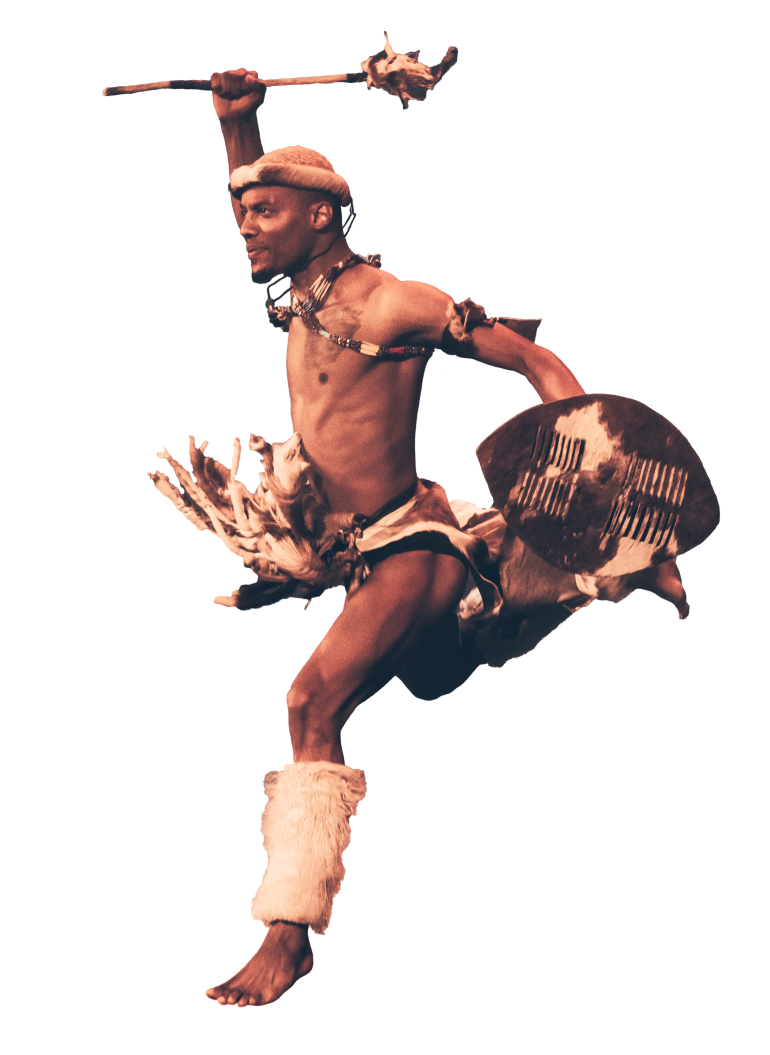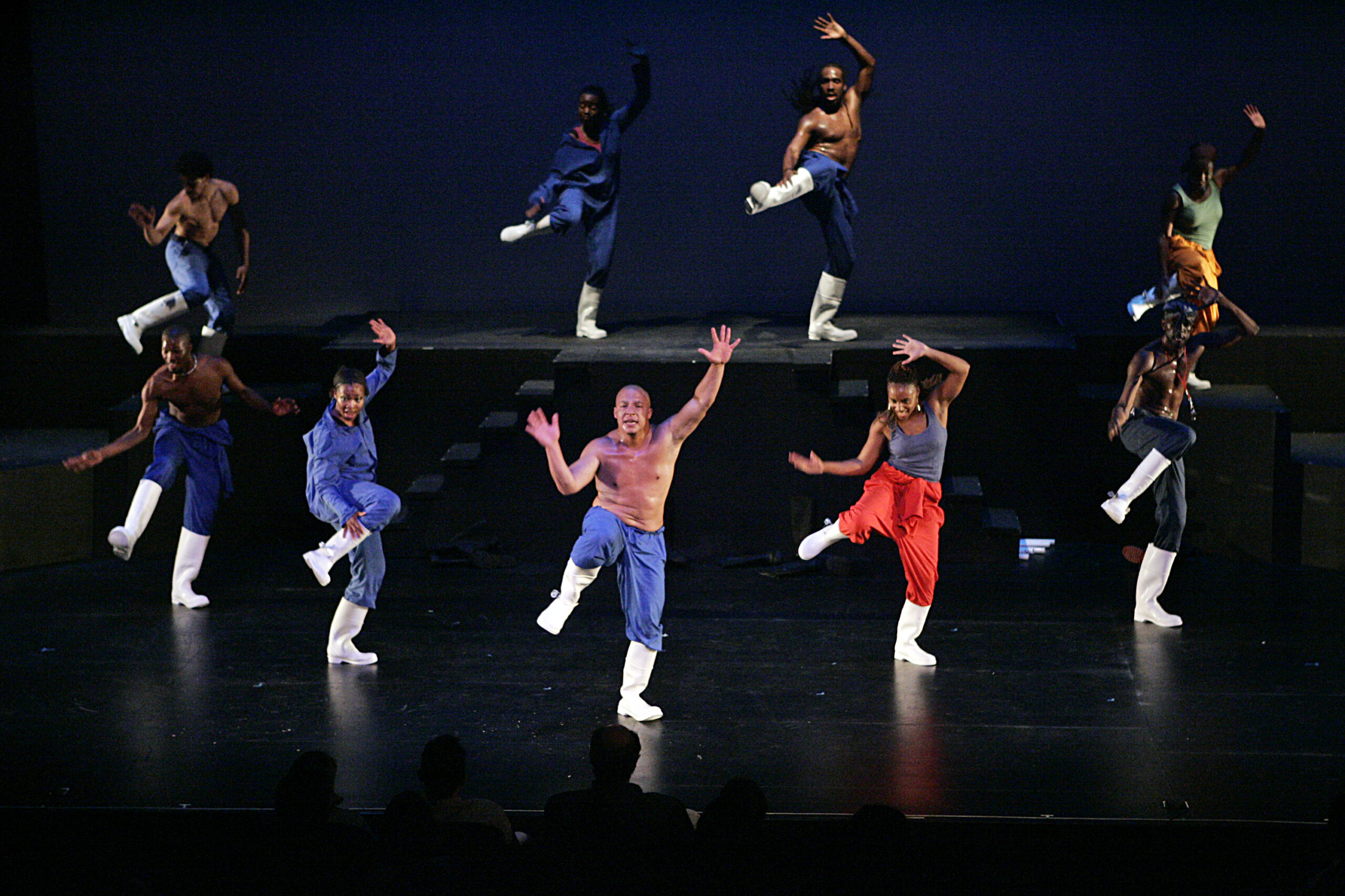Washington’s Step Afrika! Brings the Rhythm Home
Written by Lisa Traiger for the Washington Post, published June 2, 2006
“There’s nothing understated about the dance or the dancers of Step Afrika!, the District-based troupe that brings step dancing, the percussive form created by African American fraternity brothers and sorority sisters, to the concert stage. Their animated programs place stepping in a historical and cultural context that includes tap, South African gumboot dancing, Zulu tribal dances, vogueing and hip-hop.
Wednesday evening’s performance at Gala Theatre was a homecoming — back in Washington after a year on the road with a number of new and unrelentingly energetic company members, they put on a lively, sometimes ear-splitting show.
Akin to tap but with a heavier flat-footed attack on the floor, stepping also features upper-body embellishments — body percussion of sorts, with hitting, slapping, and clapping along with singsongy vocal chants, calls, and responses.
South African native Lesole Maine is effervescent in “Sebenza (Work),” a theatrical and funny take on the traditional gumboot dance. Bent forward, slapping the sides of these boots, the men find a sense of playful camaraderie. The trickery of many step dances shines in “The Pledge Scene” as four men — bulldog tough on the outside but soft-hearted beneath — try to strut before a line of sassy sorority sisters and an overbearing pledge master, who mocks the guys’ awkward, rough-around-the-edges steps.”
VIEW THE FULL 2006 ARTICLE HERE

Be A Part of Our History
Founded in 1994 by C. Brian Williams, Step Afrika! is the first professional company dedicated to the tradition of stepping. Under Mr. Williams’ leadership, stepping has evolved into one of America’s cultural exports, touring more than 60 countries across the globe. To share your Step Afrika! story, visit stepafrika.org/about/. Step Afrika!'s 30th Anniversary Timeline is made possible by the generous funding of Bloomberg Philanthropies, with additional support from the Mellon Foundation and the DC Commission on the Arts and Humanities.
ATTEND A PERFORMANCE
Get TicketsSUPPORT OUR PROGRAMS
Donate NowSTEP AFRIKA! EDUCATION
Learn MoreLEARN ABOUT STEP AFRIKA!
Learn More

 Back to Timeline
Back to Timeline
 Previous Moment
Previous Moment